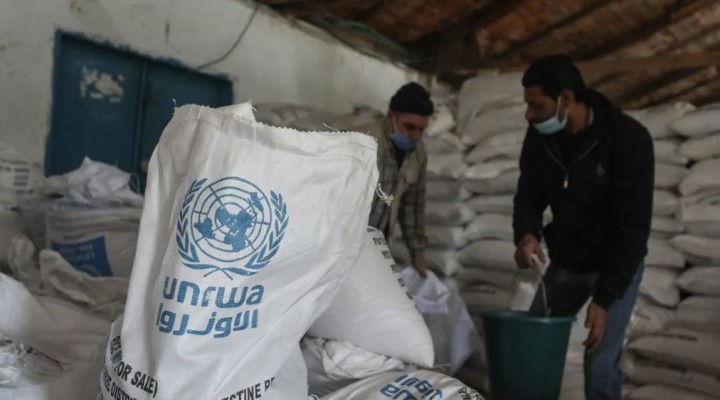Behind the façade of humanitarian aid and the UN’s Sustainable Development Goals

The humanitarian paradigm for Palestinians is not working, the UN should be informed. On the assumption that the Institution holds a shard of respect towards human rights. For several years, the United Nations Relief and Works Agency for Palestine Refugees (UNRWA), has been warning of a funding deficit that affects its provision of services. Recently, the World Food Programme (WFP) announced it will be suspending food aid to more than 200,000 Palestinians in Gaza and the Occupied West Bank due to funding issues. The decision will affect 60 per cent of Palestinians whose basic food needs are met by the WFP. If the funding is not met, the service will be entirely suspended by August.
On its website, the WFP gives an overview of food insecurity among Palestinians. Not a single mention of Israel is made, although there is a reference to “prolonged occupation”. As is common when it comes to UN agencies providing basic services for Palestinians, Israel is as far removed from the equation as possible, even though Palestine was thriving before Zionist colonisation deprived Palestinians of their access to land and resources.
The WFP also references the UN’s Sustainable Development Goal 2, which is to eradicate world hunger by 2030. Yet, the targets are as far removed as possible from the politics which determine world hunger. At this point, no one should take the UN seriously. There is no credibility in an organisation that thrives upon war and perpetuated cycles of violence to sustain itself at the expense of the people rendered vulnerable by colonialism and other forms of violence. How does the UN intend to double agricultural productivity, for example, in the case of Palestine, when the land is colonised by Israel? Secure and equal access to land, as the UNSDG2 states, is impossible when Israel barely allows access to what remains of Palestinian agricultural territory for Palestinians. Settler violence and destruction is well recorded – tackling the root problem, however, does not form part of the UN Sustainable Development Goals.
“WFP understands the implications of this unavoidable and hard decision on hundreds of thousands of people who also depend on food assistance for their most basic needs,” the organisation’s Country Director, Samer Abdeljaber, commented.
WFP states, “Our operations are entirely funded through the generous voluntary contributions of donor governments, institutions, corporations and individuals.” How about a little less hyperbole on generosity when the donors are complicit in human rights violations globally?
But what good will such words serve Palestinians? WFP is reliant on donor funds, which will not match the billions of dollars spent on war, or the billions the US grants Israel annually to sustain its colonisation of Palestinian land. The humanitarian paradigm only serves to keep people living on the edge of unsustainability – the UN knows only too well that, without addressing the root causes, humanitarian aid flounders.
So, diverting attention back to the UN, why is the organisation so intent on ensuring Palestinians remain deprived of their political rights by manipulating the humanitarian paradigm to the point of additional deprivation? The interim solution would be to increase financial assistance, but the UN knows that dismantling Israeli colonialism is a permanent solution to the crisis Palestinians have been facing since the Nakba. Why should Palestinians remain perpetually on the verge of elimination just so the UN is prevented from unravelling its own complicity with Israel?
https://www.middleeastmonitor.com/20230509-behind-the-facade-of-humanitarian-aid-and-the-uns-sustainable-development-goals/
 TheAltWorld
TheAltWorld 
0 thoughts on “Behind the façade of humanitarian aid and the UN’s Sustainable Development Goals”